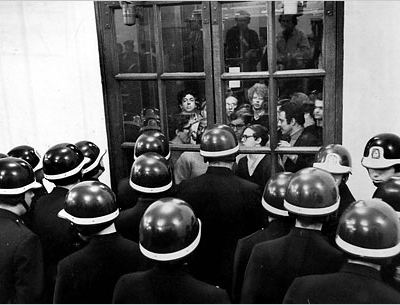The Map and the Territory – Michel Houellbecq
Readers should be grateful, not disquieted, for these provocations.
“Grandma, what are your thoughts on the de-democratizing pressures of neoliberalism?”
Spending time with your family needn’t be a source of enervation. Instead you can use this interval as a period of study and take holiday gatherings as an opportunity to radicalize your relatives.
Wall Street is everywhere, in a sense. You could occupy Corona Park in Queens and say you’ve occupied Wall Street, because it is there too.
The year in which I was made redundant, we were required to fill in “Active Schemes of Work.” No one really knew what this meant. This is kind of the Kafkaesque nightmare of these things.
Despite all the trappings of New York’s literary world, I missed basketball.
This is what democracy looked like:
One encouraging aspect of the recent interest in occupation is that it has not been domesticated as a “campus phenomenon.” However, this doesn’t mean that we shouldn’t be looking with interest at what is occurring on our campuses.
Full Stop at Hofstra University
Full Stop Contributing Editors Michael Schapira and David Backer will be giving a talk about French philosopher Jacques Ranciere tomorrow at 2:55 PM. Howard Dean will also be there, obviously.
House of Holes – Nicholson Baker
Perhaps in the economy of desire, this is what capitalism with a human face looks like in its most utopian form.
Two Steps Back and Three Steps Forward: How to Master 1960s French Utopianism in Two Weeks
I must confess to suffering from some pretty serious 1968 romanticization – and despite inspiring recent student protests in California, Chile, and London, the soixant-huitards of Paris remain my preferred model for youth protest movements.
How to Master Not Feeling So Bad About Your Employment Prospects in Two Weeks
In part two of our end of summer series “How to Master X in Two Weeks,” Michael Schapira discusses three books addressing what many of you may have been doing this summer: trying to figure out why good work is so hard to come by.











